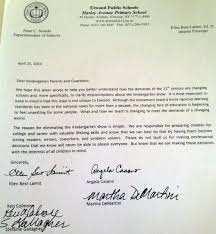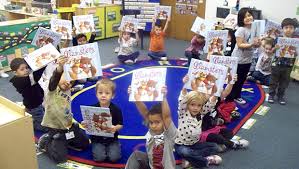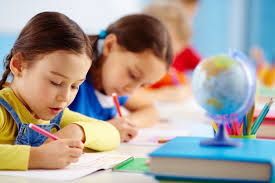

It was reported by many news sources, and it made headlines when the principal of the Harley Avenue Elementary School in Elmwood, which is located on Long Island, cancelled the annual kindergarten variety show. Why was it shutdown? This was done because snow days resulted in lost instructional time, and it was felt that the kindergarten students had more important things to do than to perform in a show. They had to prep for college exams.
Truth Stranger Than Fiction

Parent received a letter from Interim Principal Ellen Best-Laimit and four kindergarten teachers. The missive reminded them of the increased demands on schools from more rigorous learning standards.
It said, in part, “The reason for eliminating the kindergarten show is simple. We are responsible for preparing children for college and career with valuable lifelong skills and know that we can best do that by having them become strong readers, writers, co-workers, and problem solvers.”
What Does Theatre Do?
What is interesting is that the administrator and teachers obviously have no idea about what theatre does. Theatre is about problem solving at the highest levels. Much so than any test prep, it does gives students exactly what the educators think they need, as those who work with kids on a show are “preparing children for college and career with valuable lifelong skills.”

The theatre offers students and teachers amazing learning and instructional opportunities. Whether you’re reading a play in class, working on improvisation, or attending a live performance, the fact is the theatre gives all of us opportunities that no other art form does. Here are five reasons as to why the theatre is important to all of us and how it can encourage and facilitate creativity, collaboration, learning, and much more.
As Educators We Must Continue to Educate Ourselves
As an educator, I firmly believe that we need to continue to educate ourselves. This is especially true about disciplines with which we are not familiar. If one honestly thinks that kindergarten is a crucial time for test prep, then one may want to check out what some of the leading executives, entrepreneurs, and inventors in the U.S. have to say about the arts.
Importance of Arts

“In my own philanthropy and business endeavors, I have seen the critical role that the arts play in stimulating creativity and in developing vital communities….the arts have a crucial impact on our economy and are an important catalyst for learning, discovery, and achievement in our country.”
–Paul G. Allen, Co-Founder, Microsoft
“The rapidly evolving global economy demands a dynamic and creative workforce. The arts and its related businesses are responsible for billions of dollars in cultural exports for this country. It is imperative that we continue to support the arts and arts education both on the national and local levels. The strength of every democracy is measured by its commitment to the arts.”
–Charles Segars, CEO of Ovation
“We need people who think with the creative side of their brains—people who have played in a band, who have painted…it enhances symbiotic thinking capabilities, not always thinking in the same paradigm, learning how to kick-start a new idea, or how to get a job done better, less expensively.”
–Annette Byrd, GlaxoSmithKline

“It is in Apple’s DNA that technology alone is not enough—it’s technology married with liberal arts, married with the humanities, that yields us the results that make our heart sing.”
–Steve Jobs, in introducing the iPad 2 in 2011
“A broad education in the arts helps give children a better understanding of their world…We need students who are culturally literate as well as math and science literate.”
–Paul Ostergard, Vice President, Citicorp
“Arts education aids students in skills needed in the workplace: flexibility, the ability to solve problems and communicate, the ability to learn new skills, to be creative and innovative, and to strive for excellence.”
– Joseph M. Calahan, Director of Cooperate Communications, Xerox Corporation

“GE hires a lot of engineers. We want young people who can do more than add up a string of numbers and write a coherent sentence. They must be able to solve problems, communicate ideas and be sensitive to the world around them. Participation in the arts is one of the best ways to develop these abilities.”
– Clifford V. Smith, President of the General Electric Foundation
“I believe that creativity will be the currency of the 21st century.”
– Gerald Gordon, Ph.D., President/CEO, Fairfax County (Virginia) Economic Development Authority
“Creativity is just connecting things. When you ask creative people how they did something, they feel a little guilty because they didn’t really do it, they just saw something. It seemed obvious to them after a while. That’s because they were able to connect experiences they’ve had and synthesize new things. And the reason they were able to do that was that they’ve had more experiences or they have thought more about their experiences than other people. Unfortunately, that’s too rare a commodity. A lot of people in our industry haven’t had very diverse experiences. So they don’t have lots of dots to connect, and they end up with very linear solution without a broad perspective on the problem. The broader one’s understanding of the human experience, the better design we will have.”
–Steve Jobs
Last Word

As a theatre professional and educator, and as one who has sent thousands into the professional ranks and who has worked in and continues to work in the professional theatre, it’s been my experience that in order to survive in the theatre and have a career one needs to work hard, think at a very high level, be involved in solving highly complex problems, be creative and resourceful, and be engaged in a major team effort.
I’m not sure how many points arts activities are worth on a standardized test, but I’m pretty sure they develop life skills, foster intellectual thought, and help give those involved confidence; all of these attributes may be used in any occupation and in innumerable situations.
The arts when used in an educational setting are essential to and “are responsible for preparing children for college and career with valuable lifelong skills and know that we can best do that by having them become strong readers, writers, co-workers, and problem solvers.”

 Random Item
Random Item